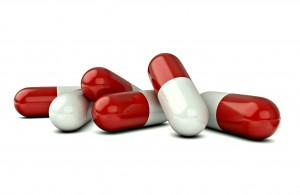The National Antimicrobial Resistance Monitoring System (NARMS) has just released its annual meat report detailing the bacteria found on meat sold at the retail level. The report states that there are increases in antibiotic-resistant bacteria found on ground turkey and chicken.
 Representative Louise Slaughter (D-NY), a microbiologist, released a press statement about the report. She said, “we are standing on the brink of a public health catastrophe. The threat of antibiotic-resistant disease is real, it si growing and those most at risk are our seniors and children. We can help stop this threat by drastically reducing the overuse of antibiotics in our food supply, and Congress should act swiftly to do so today.” Rep. Slaughter is the author of the Preservation of Antibiotics for Medical Treatment Act (PAMTA), which would phase out the use of medically important antibiotics in healthy food-producing animals.
Representative Louise Slaughter (D-NY), a microbiologist, released a press statement about the report. She said, “we are standing on the brink of a public health catastrophe. The threat of antibiotic-resistant disease is real, it si growing and those most at risk are our seniors and children. We can help stop this threat by drastically reducing the overuse of antibiotics in our food supply, and Congress should act swiftly to do so today.” Rep. Slaughter is the author of the Preservation of Antibiotics for Medical Treatment Act (PAMTA), which would phase out the use of medically important antibiotics in healthy food-producing animals.
The NARMS report found that there were significant increases in antibiotic resistance among bacteria on retail meat. Fifty-one percent of bacteria found on ground turkey was resistant to ampicillin. That antibiotic is used to treat human illnesses such as bladder and ear infections, pneumonia, and E. coli infections. In addition, 49.1% of the bacteria C. coli found on tested meat samples were antibiotic-resistant, and 48.4% of the bacteria C. jejuni were antibiotic-resistant.
No bacteria were resistant to vancomycin and linezolid, which are two of the antibiotics that are not used in food animals. Drug resistance among all varieties of Salmonella increased from 50% to 55%. Resistance to cephalosporins, a class of antibiotics restricted by the FDA in 2012, increased from 10 to 33% in chicken and from 8 to 22% in ground turkey from 2002 to 2011.




